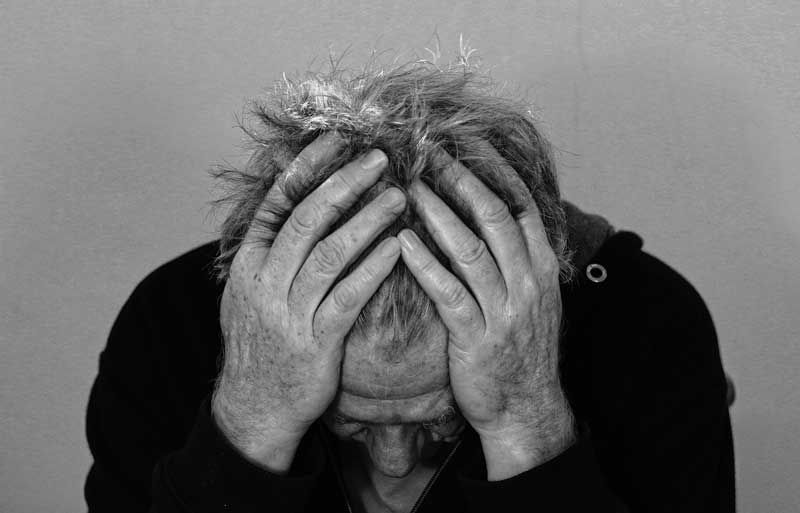What to do when you feel guilty about hurting someone is a complex emotion that can have a profound impact on relationships. It often emerges from actions or decisions that contradict our values or hurt those we care about. In the realm of relationships, guilt can fester and cause strain, leading to a multitude of challenges in maintaining a healthy and fulfilling bond. This article explores the causes and consequences of feeling guilty in a relationship, as well as strategies to navigate and overcome this emotional burden.
What To Do When You Feel Guilty About Hurting Someone
- Causes of Guilt in Relationships
- Betrayal or Infidelity
- Lack of Communication
- Neglect or Absence
- Unfulfilled Promises or Commitments
- Harsh Words or Actions
- Consequences of Guilt in Relationships
- Erosion of Trust
- Communication Breakdown
- Emotional Distress
- Repetitive Negative Patterns
- Navigating Guilt in Relationships
- Acknowledge and Apologize
- Open Communication
- Seek Professional Help
- Forgiveness and Letting Go
Causes of Guilt in Relationships
Betrayal or Infidelity
One of the most common reasons for feeling guilt in a relationship is betraying a partner’s trust through infidelity, whether emotional or physical. The realization of causing emotional pain and heartbreak can lead to an overwhelming sense of guilt. For more informative blogs visit rare cow
Lack of Communication
Failing to communicate effectively or honestly with a partner can result in guilt, especially when it leads to misunderstandings, conflicts, or unmet expectations. The feeling of not being open or transparent can weigh heavily on one’s conscience.
Neglect or Absence
Not being present or neglecting a partner’s needs, whether due to work, personal issues, or other commitments, can generate guilt. Understanding that you have not been there for your partner when they needed you can be deeply distressing.
Unfulfilled Promises or Commitments
Breaking promises or failing to follow through on commitments made to a partner can cause guilt. The sense of disappointment and hurt caused by your actions can haunt you and strain the relationship.
Harsh Words or Actions
Saying or doing things in the heat of the moment that hurt your partner can create immense guilt. Realizing that your actions or words have caused pain can be difficult to bear.
Consequences of Guilt in Relationships
Erosion of Trust
Guilt can erode the trust that is fundamental to a healthy relationship. What to do when you feel guilty about hurting someone a partner feels guilty, the trust they once enjoyed may diminish, making it harder to rebuild.
Communication Breakdown
Guilt can hinder effective communication as the person feeling guilty may withdraw or struggle to express themselves openly. This communication breakdown can further damage the relationship.
Emotional Distress
Guilt is emotionally taxing and can lead to anxiety, depression, and a persistent feeling of being weighed down. This emotional distress can affect the overall well-being of both partners.
Repetitive Negative Patterns
The guilt that arises from past actions can create a cycle of negative behavior, where guilt leads to more actions that induce guilt. Breaking free from this cycle is challenging.
Navigating Guilt in Relationships
Overcoming guilt in a relationship requires proactive steps and effort from both partners:
Acknowledge and Apologize
Acknowledge the actions or behaviors that caused the guilt and sincerely apologize to your partner. Taking responsibility for your actions is the first step toward healing.
Open Communication
Initiate open and honest communication with your partner about your feelings of guilt. Discuss how it has affected you and your relationship, and listen to their perspective as well.
Seek Professional Help
Consider couples counseling or therapy to work through the guilt and its effects on the relationship. A trained therapist can provide guidance and strategies to rebuild trust and navigate the complexities of guilt.
Forgiveness and Letting Go
Both partners need to work on forgiveness – forgiving oneself for past actions and forgiving the other for any pain caused. Letting go of guilt is essential to move forward and rebuild the relationship.
Conclusion
Guilt is a burdensome emotion that can cast a dark shadow over relationships. Understanding the causes and consequences of guilt is vital in finding ways to alleviate its impact. Through acknowledging, communicating, seeking help, and ultimately forgiving, What to do when you feel guilty about hurting someone can navigate the murky waters of guilt and rebuild a stronger, more resilient bond. What to do when you feel guilty about hurting someone important to remember that no relationship is perfect, but with effort, understanding, and love, healing is possible.




